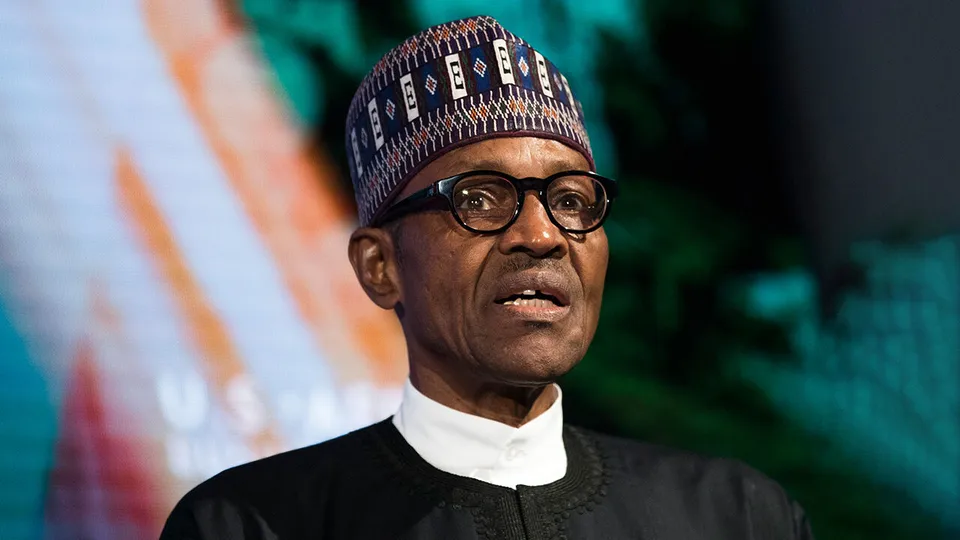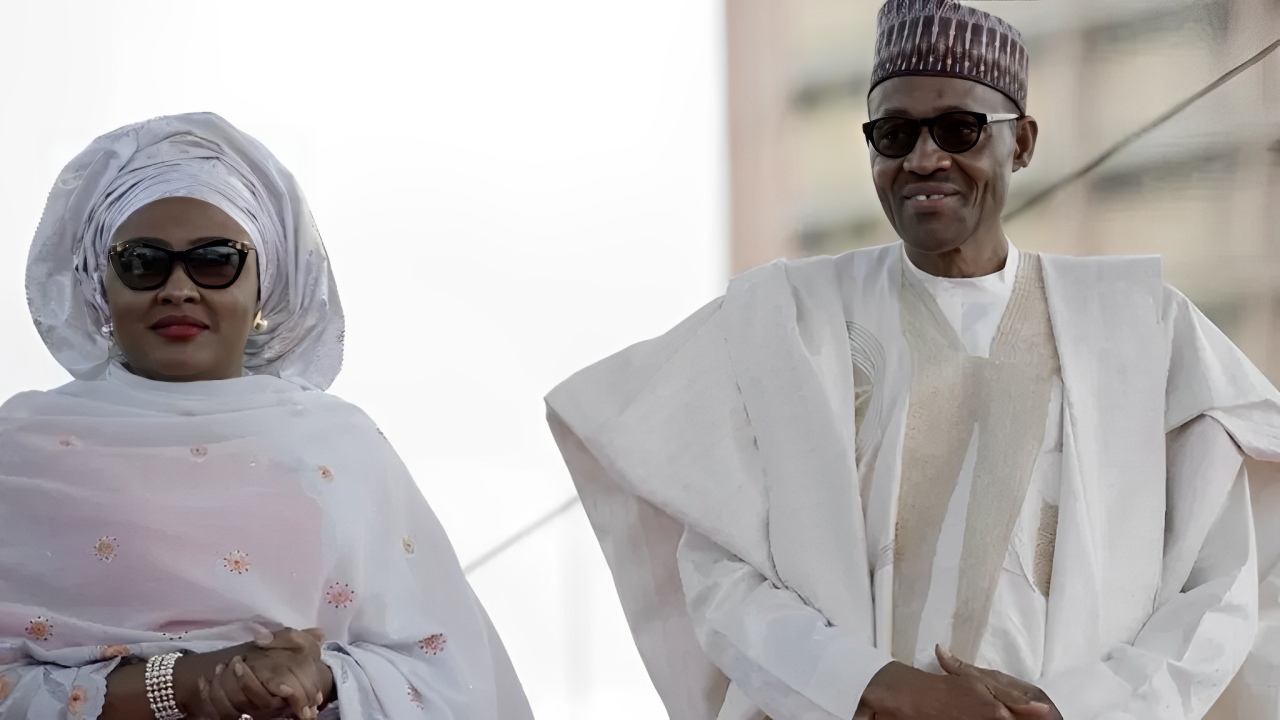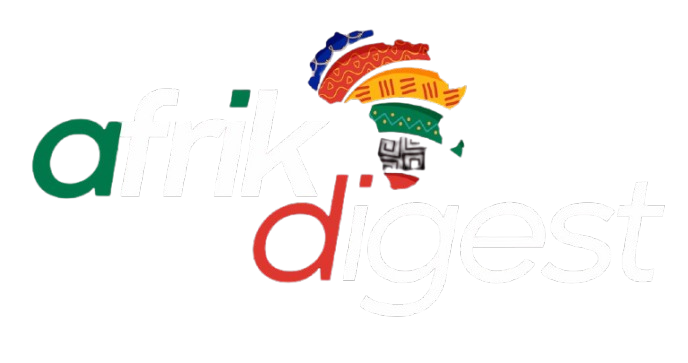A dictator, then a democratic president, he failed to build a better Nigeria, twice

Nigeria’s former president, Muhammadu Buhari, passed away on Sunday, July 13 in a London hospital. He was 82 years old. The cause of death was not disclosed but he had suffered from ill-health for many years.
Buhari was democratically elected into office in 2015, after three previous failed attempts, and he secured a second term four years later. He was also the country’s military ruler for nearly 20 months, between the beginning of 1984 and 1985, making him the second-longest-serving holder of the country’s highest position.
The self-described “converted democrat” is being remembered by many as a central figure in his country’s democratic evolution. However, some critics have also noted his failure to improve Nigeria’s economy or its security during his presidency.
Paying tribute to his predecessor on Sunday, President Bola Tinubu called him “a patriot, a soldier, a statesman”.
“He stood firm through the most turbulent times, leading with quiet strength, profound integrity, and an unshakable belief in Nigeria’s potential,” Tinubu wrote in a post on X.
For many Nigerians, Buhari didn’t leave a complicated legacy behind. If anything, his cumulatively almost-decade period as Nigeria’s leader is unflattering, as some regard him as the country’s worst president, a title he’s fighting for alongside men who only ruled as military dictators. The sobering numbers are proof: In eight years as elected president, he more than tripled Nigeria’s unemployment rate, inflation climbed, and he nearly doubled the country’s debt profile from N42 trillion ($27.5 billion) to N77 trillion ($50.3 billion).
Buhari was born in Daura, Katsina state, in 1942, as the last of his father’s 23 children and the last of his mother’s 13 children. After attending Katsina Provincial Secondary School, he enlisted in the fifth training course of the Nigerian Military Training College (NMTC).
Never a natural politician, he was seen as aloof and austere. But he retained a reputation for personal honesty – a rare feat for a politician in Nigeria.
Buhari had always been popular among the poor of the north (known as the “talakawa” in the Hausa language) but for the 2015 campaign, he had the advantage of a united opposition grouping behind him.
Many of those who supported him thought his military background and disciplinarian credentials were what the country needed to get to grips with the Islamist insurgency in the north. Buhari also promised to tackle corruption and nepotism in government, and create employment opportunities for young Nigerians.
But his time in office coincided with a slump in global oil prices and the country’s worst economic crisis in decades.
His administration also came under fire for its handling of insecurity. While campaigning he had promised to defeat the Islamist militant group Boko Haram. But the group remains a threat and one of its factions is now affiliated to the so-called Islamic State group.
There was also an upsurge in deadly clashes between farmers and ethnic Fulani herders in central Nigeria. Mr Buhari, a Fulani, was accused of not being tough enough on the herders or doing enough to stop the crisis.
The activities of so-called bandits in the north-western part of the country saw the abduction of hundreds of secondary school students.
Under his watch armed forces were accused of human rights abuses – like opening fire on anti-police brutality protesters at the Lekki tollgate in Lagos in October 2020.
According to the biography of Shehu Musa Yar’Adua – a former military vice president who was also classmates with Buhari in secondary school and at the NMTC –Buhari’s choice to join the army, like many northern officers from that era, was inspired by the then Emir of Kano Muhammadu Sanusi I, who “told one of us that if soldiers could overthrow a line of kings descended directly from the Prophet, it could happen anywhere.”

Buhari first came into power following a coup in late 1983 that overthrew the civilian administration led by President Shehu Shagari. Before that, he had taken part in a few successful coups, including the removal of General Yakubu Gowon in 1975. He subsequently served as the military governor of Borno State and petroleum minister before the return to democracy in 1979.
Although he came into office with the self-given mandate of cleaning up the mess made by Shagari’s government, Buhari’s junta summarily made life worse for Nigerians. A struggling economy was exacerbated by several policies, including the tightening of imports, stringent price control measures, and currency adjustments, which led to high inflation, business closures, and an early runway for a recession.
The War Against Indiscipline (WAI) campaign was Buhari’s trademark. It involved strict social laws, where citizens could be physically punished for something as trivial as not keeping in line while waiting for buses. His administration also cracked down on journalists using the Public Officers (Protection Against False Accusation) Decree – popularly known as Decree 4 – as a tool to prosecute those reporting on government dealings.
There was also Decree 2 [the State Security (Detention of Persons Decree], which was used by the Buhari administration to indiscriminately arrest hundreds of politicians, former government officials, and businessmen on corruption charges. The Decree allowed Buhari’s second-in-command, Brigadier Tunde Idiagbon, to arrest and detain individuals for up to three months, which could be indefinitely renewable if suspicion persisted.
Buhari’s government also locked up Nigeria’s greatest musical hero, Fela Kuti – a thorn in the side of successive leaders – on trumped-up charges relating to currency exports.
Buhari’s attempts to re-balance the public finances by curbing imports led to many job losses and the closure of businesses.
As part of anti-corruption measures, he also ordered that the currency be replaced – the colour of the naira notes was changed – forcing all holders of old notes to exchange them at banks within a limited period.
Prices rose while living standards fell, and in August 1985 Buhari was ousted and imprisoned for 40 months. Army chief Gen Ibrahim Babangida took over.
Nigerians love nicknames and some of the country’s leaders’ nicknames have stuck even long after they left office.
For example, former military leader Ibrahim Badamasi Babangida is still called “Maradona” for what people perceived as his tactical dribbles on issues and situations.
For Buhari, it was “Baba [Father] go slow” after it took him six months to name his first cabinet on assuming office in 2015.
Responding to his nickname years later, Buhari said it wasn’t his fault that it took so long to get anything done.
“Yes, we are slow because the system is slow. It’s not Baba that is slow but it is the system so I am going by this system and I hope we will make it,” he said in 2018.
Any assessment of Buhari’s presidency must take account his declining health, which caused him to take significant absences from work, especially during his first term.
The former military ruler may have reinvented himself as a democrat but there was no such commitment to transparency concerning his own health, with Nigerians left uninformed about the fitness of their head of state for office.
Muhammadu Buhari married twice, first to Safinatu Yusuf from 1971-1988, and then in 1989 to Aisha Halilu, who survives him. He had 10 children.



